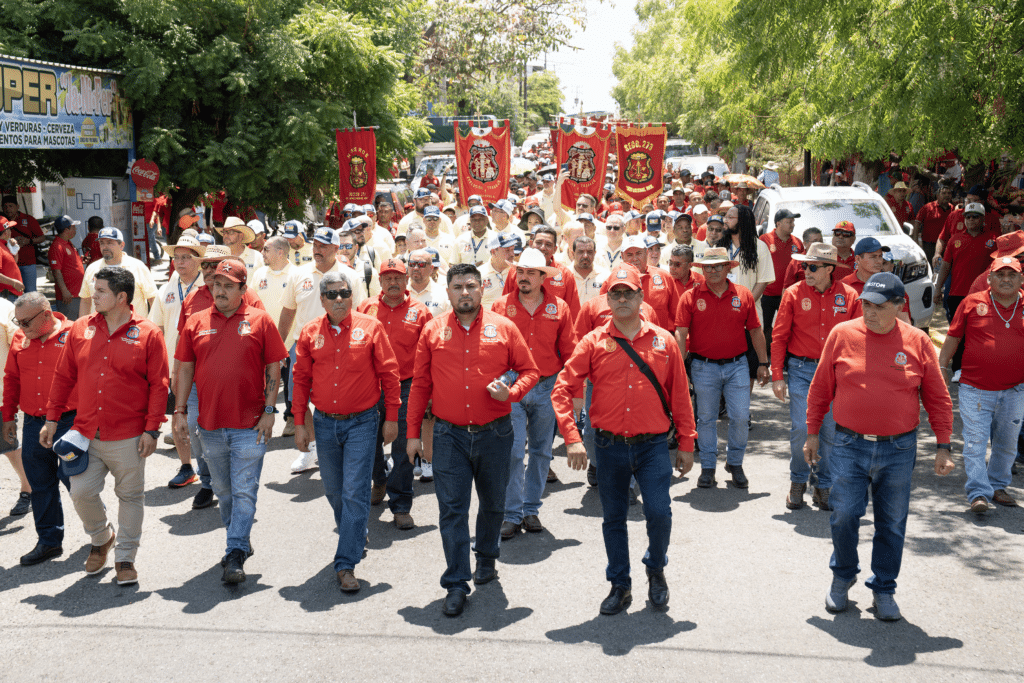USW Pushes New Global Mine Safety Rules
The USW was instrumental in negotiating new standards for opencast mining that would significantly improve safety and health for mine workers around the world.
USW District 3 Director Stephen Hunt led a workers’ group as part of the International Labour Organization’s (ILO) discussion of the new standards during ILO meetings in Switzerland from Oct. 16 to 20.
John Rebrovich, assistant to USW District 11 Director Emil Ramirez, who works closely with USW members in the iron ranges of Minnesota and Michigan, also participated in the negotiations.
“USW members should be proud of our union’s pivotal role in this extremely important international effort,” said USW International President Leo W. Gerard. “These standards would represent a major step forward for all opencast mine workers around the world.”
The governing body of the ILO, a United Nations agency that sets international labor standards, is scheduled to vote to adopt the new standards in March.
“The draft code provides general principles and specific guidelines to prevent accidents and protect mine workers’ occupational health and safety in opencast mines,” Hunt said. “The new code will lift the minimum floor and support the fundamental rights and responsibilities of workers.”
IndustriALL, the global labor federation, coordinated the efforts of labor leaders from the U.S., Canada, Colombia, India, Indonesia, South Africa and Zambia. In addition to the labor group, the negotiations included representatives of governmental bodies and mining companies from around the world.
Besides simply raising safety standards at mines around the world, the new code will influence legislation governing mining and improve corporate responsibility standards, collective bargaining agreements and company policies. The code would revise one that the ILO adopted in 1991.
The workers’ group focused on three major issues in the negotiations, including ensuring the right of workers to know the hazards of their work and to receive training and education to perform that work safely, the right to refuse unsafe work without fear of repercussions, and the right to participate in the development of new health and safety policies at their workplaces.
By clicking Sign Up you're confirming that you agree with our Terms and Conditions.
Recent News Articles
Want to Learn More?
See how the USW is making a real difference in our communities and our workplaces.

